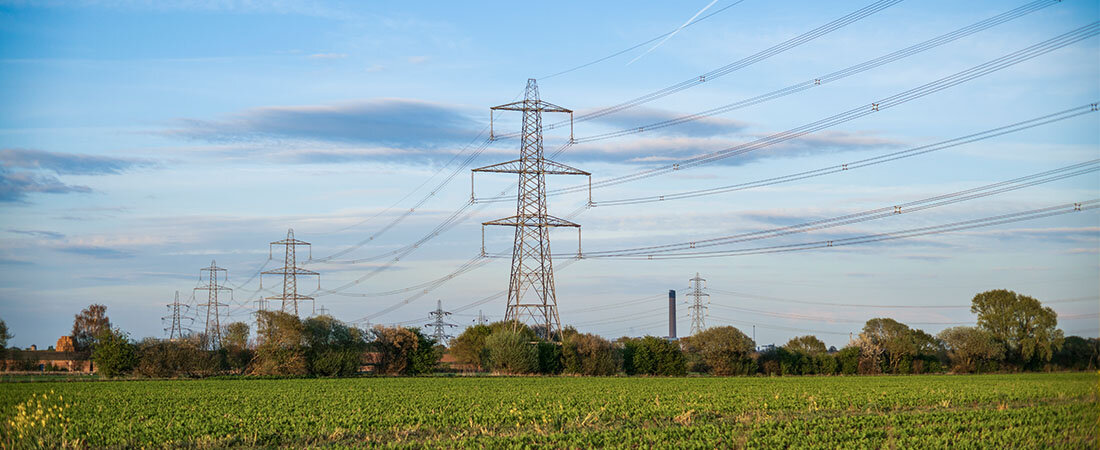The National Grid plays a critical role in connecting millions of people across the UK to the energy they use – but the reality is that our creaking National Grid needs urgent reform to turbocharge Britain’s green industrial revolution.
In July 1953, Britain switched on its new high voltage super grid for the first time, transforming the country’s energy potential and delivering a clean, safe and reliable network.
At the time it was made to easily accept future upgrades, with technological advances meaning that, parts of the network were replaced with higher-rated equipment, new tower designs, and the ability for greater capacity.
The grid would continue to evolve throughout the sixties and seventies with new overhead lines, underground cables and substations connecting new sources of power like nuclear and gas plants.
Ownership of the grid naturally changed hands throughout the course of this period, until 1990 when the privatisation of the electricity industry transformed into the newly formed National Grid.
Since then, the National Grid has continued to innovate, finding ways of connecting new power sources to the grid to provide Britain with the power to keep the lights on. In recent years, it’s experienced more challenges in connecting new projects, and importantly renewable projects, to the grid.
In July, the Local Government Association (LGA) revealed that more than a thousand clean energy projects with planning permission were waiting to be built. Of the 1,300 renewable energy schemes waiting to be built, only 150 were under construction.
Even before this, however, there were warning signs. In May, the energy regulator, Ofgem, warned the National Grid that it must fix what it called “unacceptable” delays in connecting solar and wind projects to the grid. In response, the National Grid blamed the issue on a set of archaic rules and regulations that stop the network upgrading based on anticipated future demand.
The issue wouldn’t be so worrying were it not for the Government’s commitment to reach net zero by 2050. To meet such an obligation, the country needs a mix of energy sources, from onshore and offshore wind, to solar and tidal. This will be supported by nuclear power to provide a constant energy source for when the wind doesn’t blow, and the sun doesn’t shine.
If the UK is to meet its target, then urgent reform to the National Grid is needed, not only to improve grid connections but to once more future proof the grid, so that it can continue delivering a clean, safe and reliable network.
Front and centre of this should be resolving the queue management system to prevent delays to existing and new renewable projects. The Government should also work with Ofgem and the National Grid to identify projects which are ‘shovel-ready’, and ready to be built. Recent amnesties and queue management initiatives should also be extended in the short-term until a long-term solution is put in place. Such measures would be a welcome relief for a creaking grid that has struggled to keep up with demand.
The responsibility, however, does not solely lie with the National Grid and Ofgem. Reforming the National Grid will deliver cleaner, greener energy, and importantly help reduce energy bills. It’s something that should be front and centre of the Government’s agenda and yet is rarely given public attention.
Part of resolving this challenge lies with the Prime Minister and his decision about whether the environment should be a key pledge of his government. Were the Prime Minister to prioritise the environment and energy generation, he could begin to put in place reforms that would go some way to addressing the challenges experienced.
However, until the National Grid becomes a priority, renewable projects that are meant to power this country for decades to drive forward Britain’s green industrial revolution, will remain stuck.
When it was created, the National Grid transformed Britain’s energy potential. That same entrepreneurial zeal that turbocharged energy growth across the country is once more required, not only to deliver economic growth but to finally deliver on Britain’s net zero commitments.

